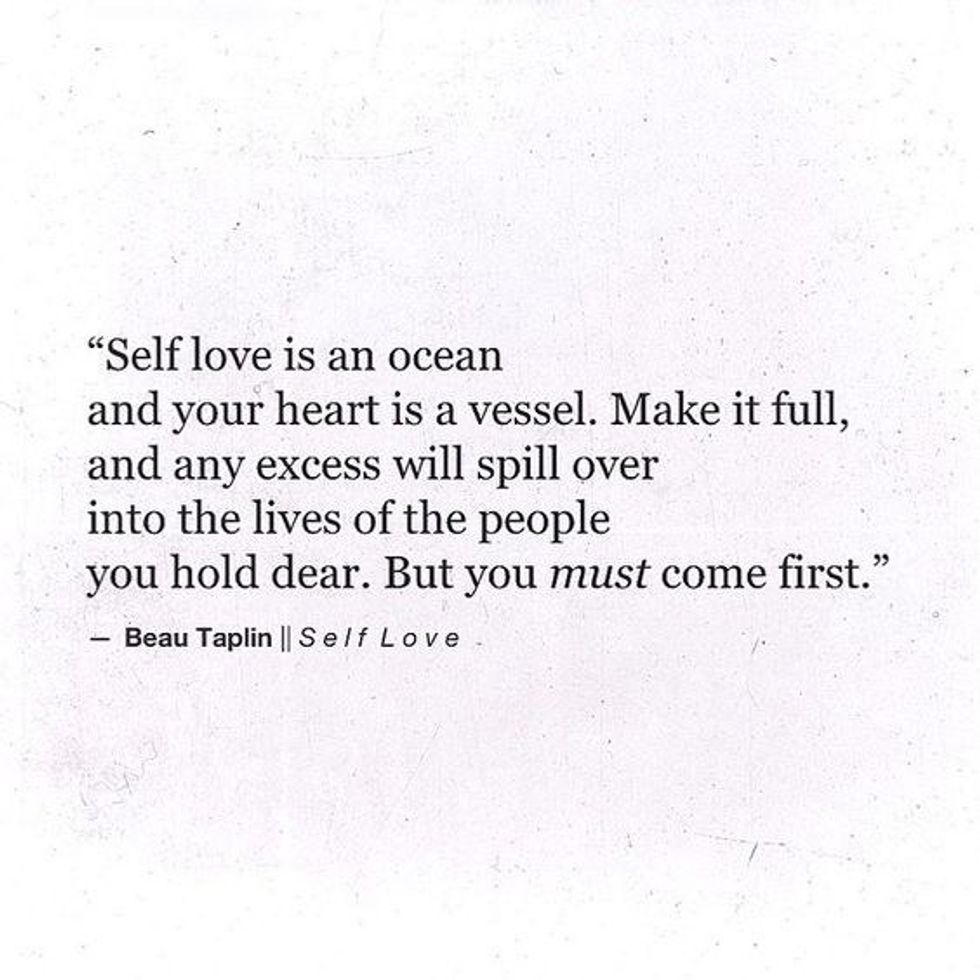We’re always told that we need to love ourselves before we can be able to truly love anyone else. So, why is it that when we do finally love ourselves completely, it’s frowned upon and called narcissistic? It’s a double standard that a lot of people seem to have misconceptions about, so where is the line drawn between self-love and narcissism and who has the power to draw this line?
If a man or woman exudes confidence, people construe this as cockiness or self-righteousness. Seems like a lose-lose situation, doesn’t it? If you don’t love yourself, you’re depicted as weak or sad. People tend to take pity on those who admit that he or she does not fully love themselves. On the other hand, if you do love yourself and radiate confidence, people are quick to judge and mistake this with conceitedness. Is the line between these two parallels thin or thick as molasses?
Self-love is not only seeing the beauty in yourself but also seeing the beauty in others. Narcissism is being blinded to the beauty in others and only focusing on the materialistic aspects of a person. Narcissism is not self-love; it is self-absorption at the expense of others. If you’re a person who often confuses the differences between these two aspects, you need to take a step back and realize that there is more than meets eye. We’re always told this little notion, but if you’re one of these people who says a person is conceited because they love themselves, then you haven’t been digging deeper into your relationships with others.
The dictionary defines self-love as a “regard for one’s own well-being and happiness” and defines narcissism as “excessive or erotic interest in oneself and one’s physical appearance.” So, by the dictionary’s standards, self-love is internal while narcissism is external. Since your external self is the first thing outsiders see of you, a common confusion is what you’re supposed to do for other’s to not see you as cocky or conceited. But, it can be argued that only narcissistic people truly care about how other’s view them because the people who have achieved self-love, care only about how they view themselves.
My mom always told me growing up, “What other people think of you is none of your business.” If you’re happy with who you are and who you are becoming as you get older, that should be all that matters, right? That’s clearly easier said than done because as you’re growing up, you want to be liked and accepted.
Being able to truly love yourself is not an easy feat, so when someone undermines this and confuses self-love with narcissism, it plants a seed in that person’s mind that maybe they’re doing something wrong. This seed has the potential to grow and the potential to set this person back to where they were before they accepted themselves for who they are. Why would anyone want to interfere with the progress someone has made with being happy with who they are and who they have become? Maybe the people who choose not to see the diversity and the good in people are the ones who are still on their journey to find out how to truly love themselves. But if we don’t dig deeper into our relationships, how will we ever know?
People need to stop confusing self-love with narcissism not only because these two notions are at opposite ends of the spectrum, but because self-love is a work in progress and when people call this narcissistic, it destroys that work in progress.












































